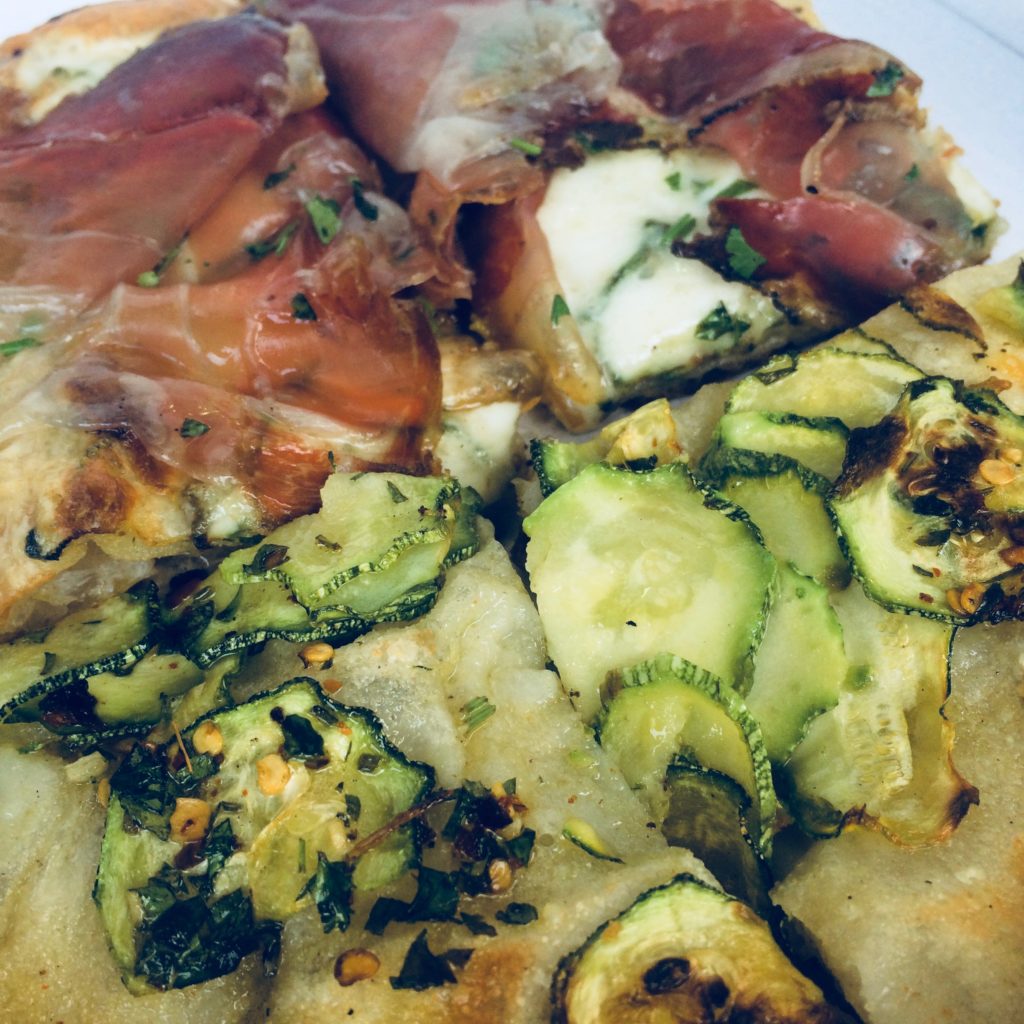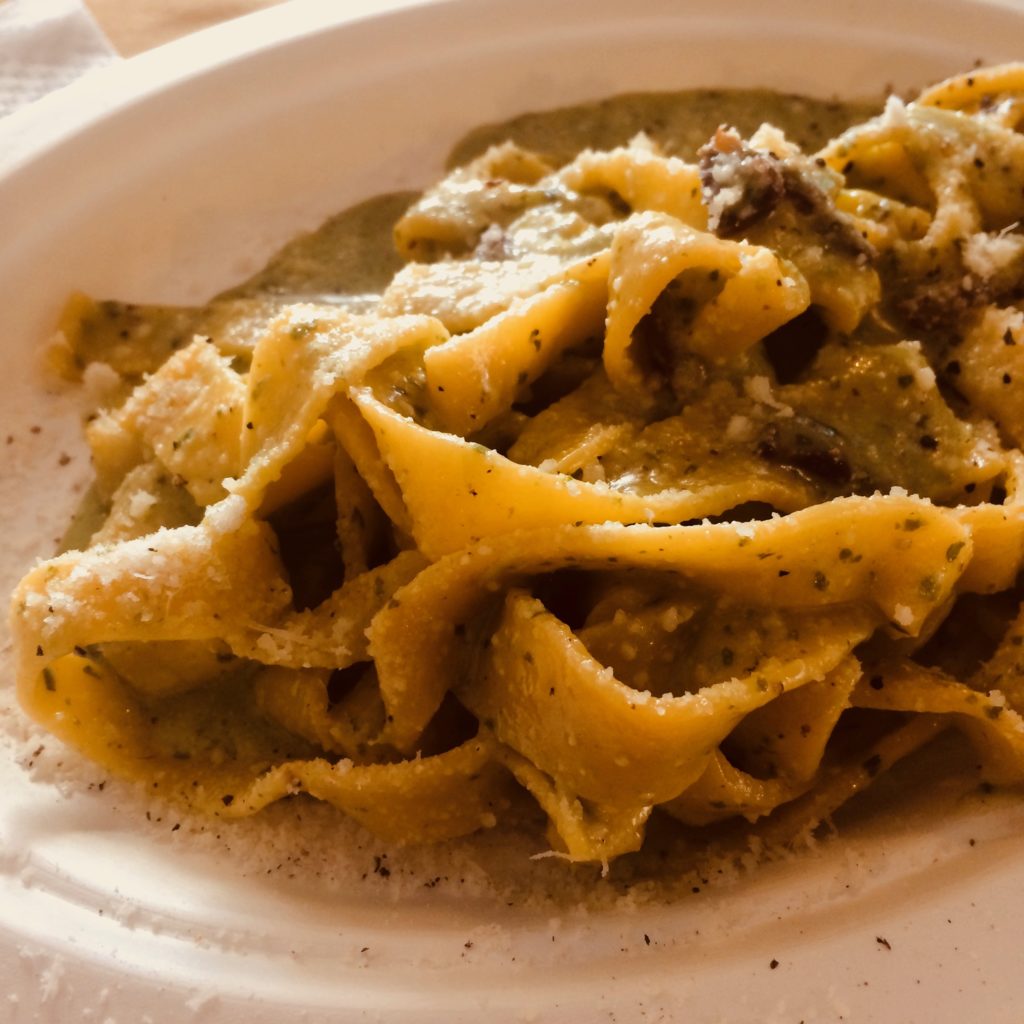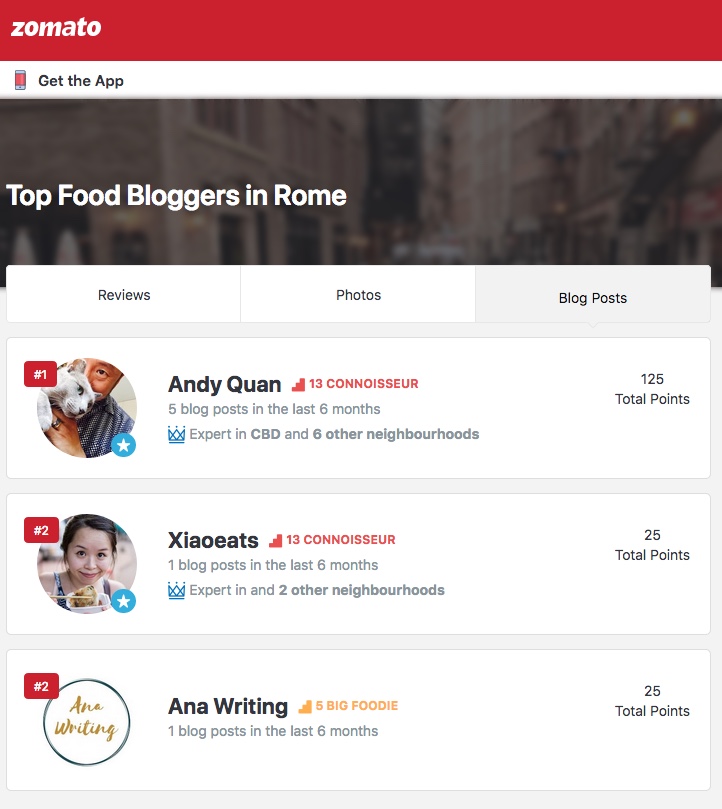
I was lucky enough to spend about four days in Rome before my holidays in Sicily and Southern Italy. Good meals are always on my travel agenda, and writing about those meals serves a few purposes for me: it allows me an additional souvenir of the experience and recording that experience pushes me into considering the experience more deeply and fully.
So, I enjoyed eating in Rome, and blogging about it and putting up reviews. As I’m based in Australia, my preferred review site is Zomato. It bought out another Australian review site that I enjoyed using, eatability, but mostly they’ve suckered me in by gamifying my reviews so that I can be ranked as a top reviewer in a city. TripAdvisor has systems for giving various points and rankings but it just doesn’t excite me to ‘reach level 32 for hotel reviews’.
When I first got onto Zomato, I found pretty much right away that by regularly blogging my meals in Sydney that I could appear in the top ten of Sydney food bloggers (I’m currently number two). There are so many instagrammers in Sydney though, and reviewers (who put short reviews directly on Zomato, rather than writing a blog and linking to Zomato) that I am not on any top list of reviewers, and think I’m around #40 as a food photographer.
 In Rome, however, Zomato is not very popular. In Italy, they’re only available in Rome, so it seems like an experiment as a business decision. The bad thing is there are not so many reviews up. The good thing, for me, is that after four days of blogs and reviews, I’m the number one blogger in Rome, the #15 reviewer and the #13 photographer. This won’t last that long I suspect (and after six months, the “points” expire) but for now, it amuses me.
In Rome, however, Zomato is not very popular. In Italy, they’re only available in Rome, so it seems like an experiment as a business decision. The bad thing is there are not so many reviews up. The good thing, for me, is that after four days of blogs and reviews, I’m the number one blogger in Rome, the #15 reviewer and the #13 photographer. This won’t last that long I suspect (and after six months, the “points” expire) but for now, it amuses me.
What is clearly most popular is TripAdvisor. It is pretty great to have such a huge number of reviews for each of the restaurants and hotels, as I do think that data doesn’t lie. Even if there are unfair reviews in one direction, the same amount of unfair reviews in the other direction should balance it out.

My ranking on Zomato for blogging… on 31 July 2018
I do have a problem of the phenomenon that if a restaurant receives too many good reviews, other reviewers may just try to knock it down, or be extra grouchy because of the good reviews. And I also think in popular tourist destinations like Paris and Rome that you’ll see that the restaurants that are most visited are in the most touristy destinations, and some manage to garner great reviews because of their ability to be hospitable over the quality of their food (for me, the most important factor is food).

My ranking on Zomato for reviews… on 31 July 2018
I recently read that every one star loss or gain on Yelp leads to a 5 to 9% decrease or increase in review… Is that a good thing or a bad thing? If you believe that the wisdom of the crowds correctly assesses a business, and rewards good businesses with good reviews, it would be a good thing.
I do worry if ratings end up being unfair though, and I know how hard restauranteurs and their staff work, and what a tough business it is for the owners. I’m not entirely comfortable with the idea that restaurants these days get better ratings because either their food is instagrammable or they have a good marketer who knows how to attract reviewers, bloggers and instagrammers to their restaurants.

My ranking on Zomato for photos… on 31 July 2018
But on the other hand, because I believe I am a fair reviewer, I feel good about contributing, with honesty, to the wisdom of the crowds, and it’s like a nice tip to the restaurant, if they’re good, and I can give them a good review.

